Best Golf Balls for Slow Swing Speeds 2025
Most club golfers aren't blessed with tour pro swing speeds, hence the need for our guide to the best golf balls for slow swing speeds

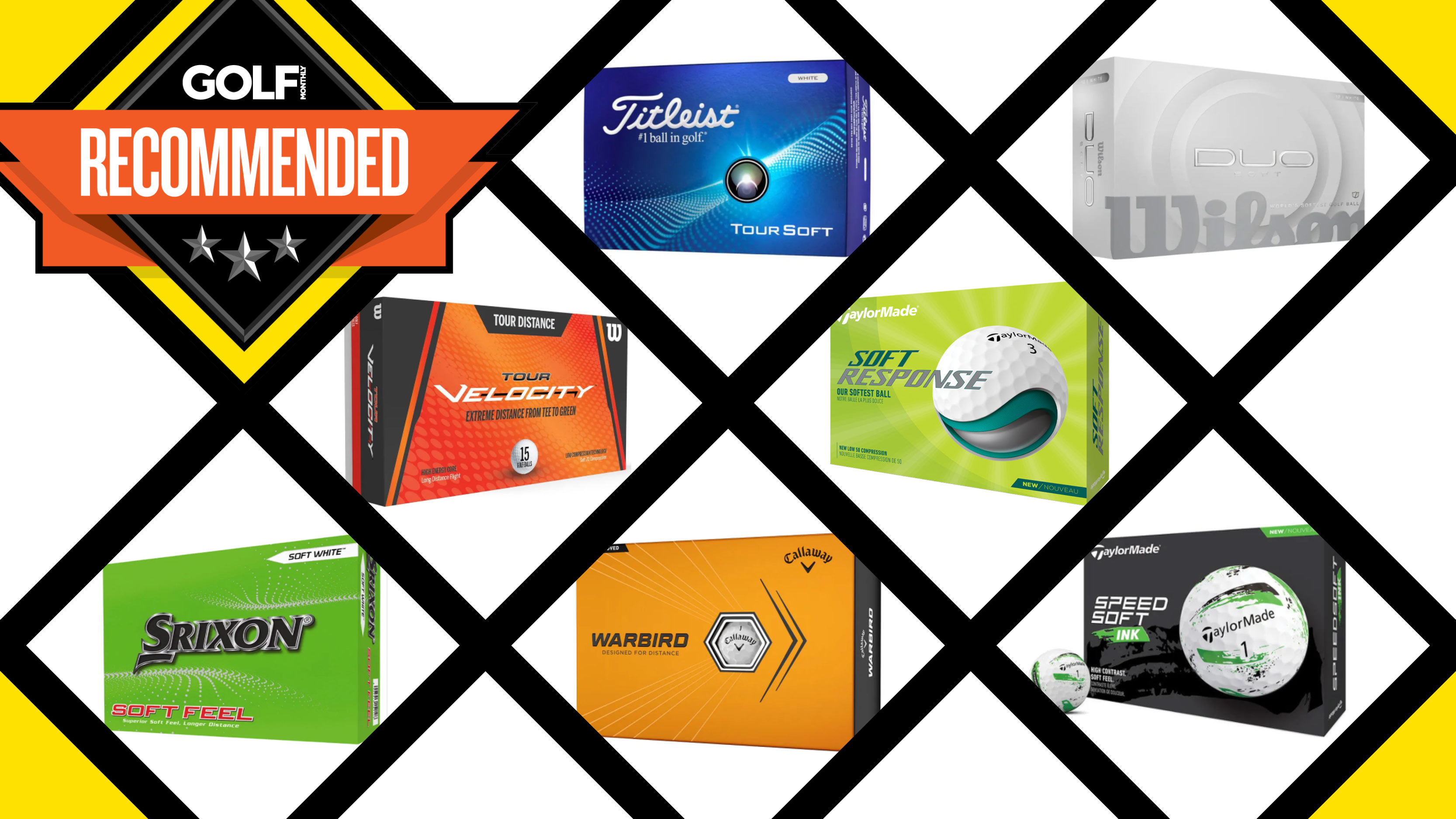
Not all golf balls are the same. Some are designed to spin more, launch higher or carry further. Just like with your clubs then, it makes sense to play a ball that matches both your swing and your goals. Most golfers, regardless of handicap, are chasing extra distance, especially off the tee. The question is; how do you choose the right ball for that pursuit? A good starting point is to look at your swing speed.
Trackman data shows that the average mid-handicap male golfer swings the driver at 93.4mph, producing around 214 yards carry off the tee. If your swing speed falls below this then you’ll likely benefit from a ball designed to maximise distance.
While it’s tempting to grab a box of the best golf balls, if you have a slower swing speed those models will not be the best fit for you. It’s easy to be swayed by marketing, and there's an obvious appeal of playing the same ball as your favourite pro. But you have to remember that those balls are built for young, powerful athletes with elite clubhead speed and with all due respect, probably do not match your game!
Instead, opt for a ball engineered for slower swing speeds. All the major brands now produce models specifically aimed at generating more speed off the clubface. Not only can these give you extra yards, they also tend to be more affordable since premium tour-level balls usually carry a premium price tag.
Here’s a closer look at some of the best golf balls for slow swing speeds. You might also want to check out our guides to best distance golf balls and the best golf balls for beginners.
The Quick List
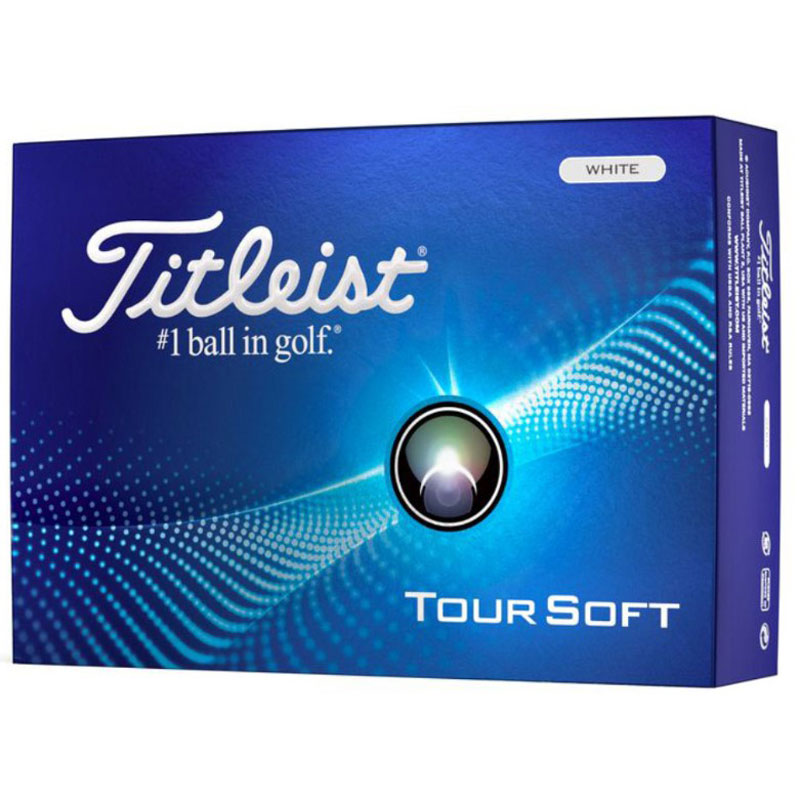
The Titleist 2024 Tour Soft delivers impressive performance for a mid-priced golf ball. The soft feel will appeal to players who value touch, especially with the scoring clubs, while a new faster core helps maintain strong ball speeds.
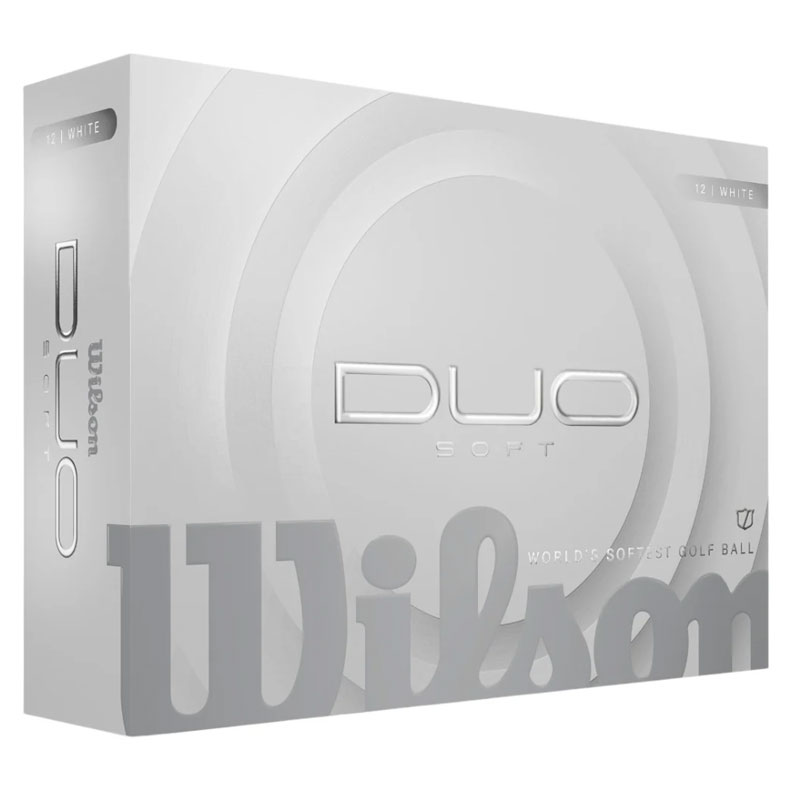
The Duo Soft offers solid distance off the tee, impressive durability, and outstanding value for money - a combination that makes it an excellent choice for senior golfers.
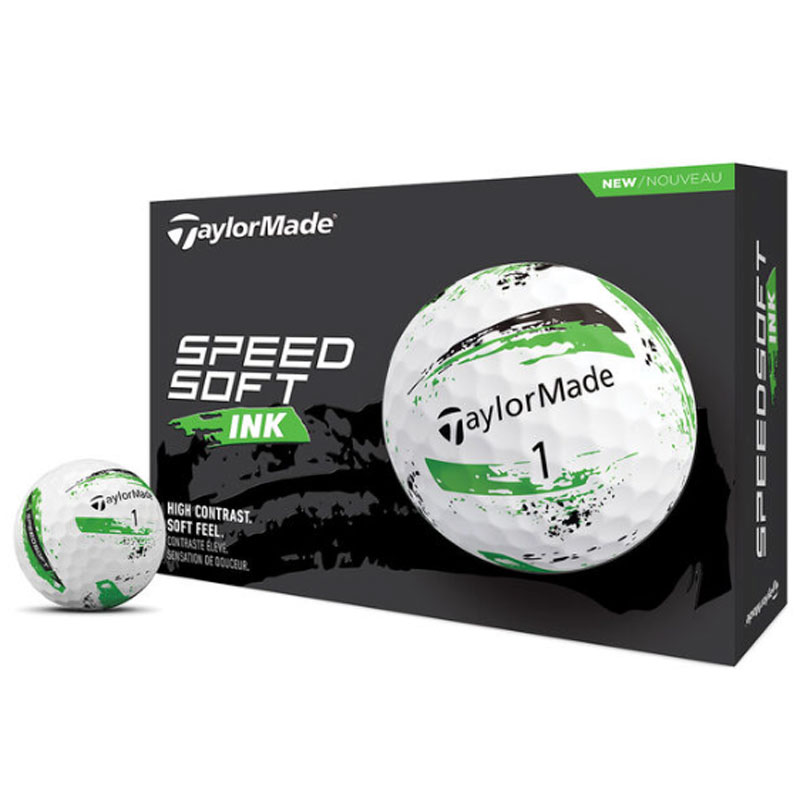
The SpeedSoft Ink golf balls deliver a well-rounded mix of feel and performance, with vibrant colors and a unique splatter design that make them stand out, especially in the rough.
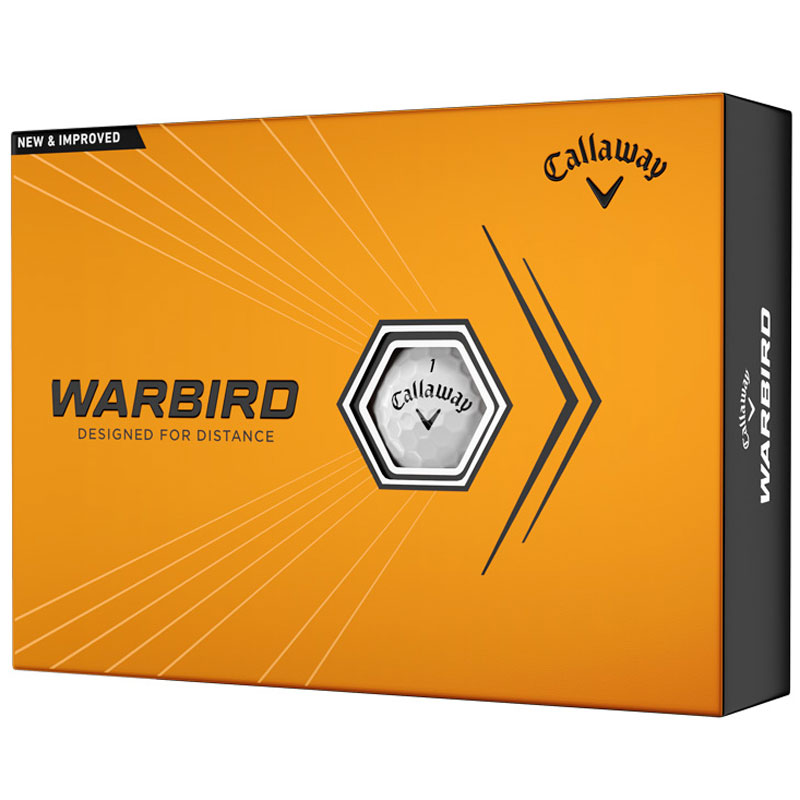
Callaway Warbirds are a reliable distance ball that can help boost your yardages. They’re a solid choice for golfers seeking extra distance, with the added bonus of an attractive price point.
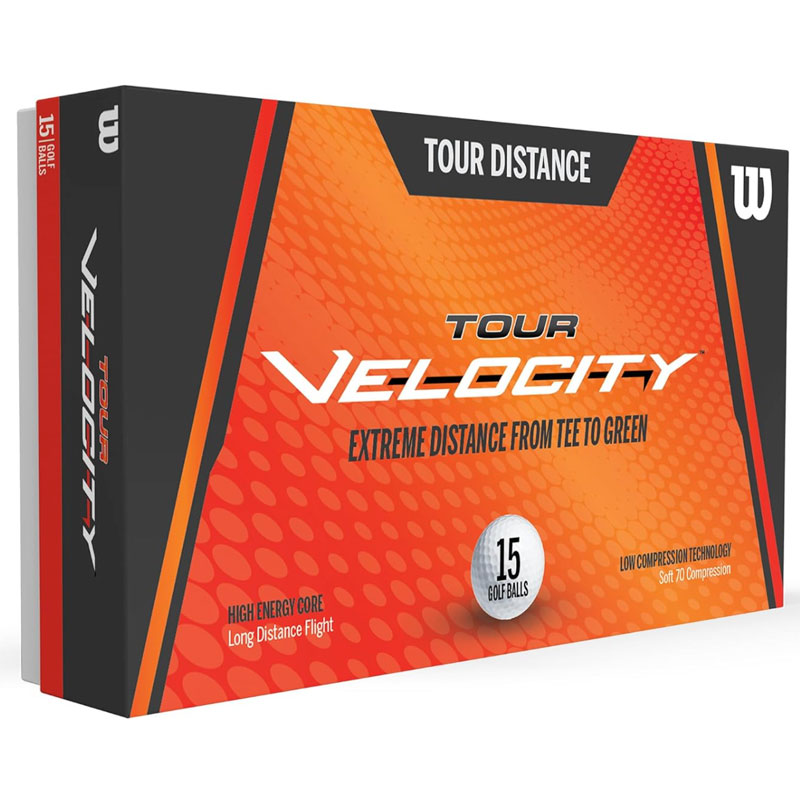
Wilson’s Velocity Tour Distance golf balls provide excellent value for beginners, delivering strong all-round distance along with impressive durability.
Best Golf Balls for Slow Swing Speeds
Top pick
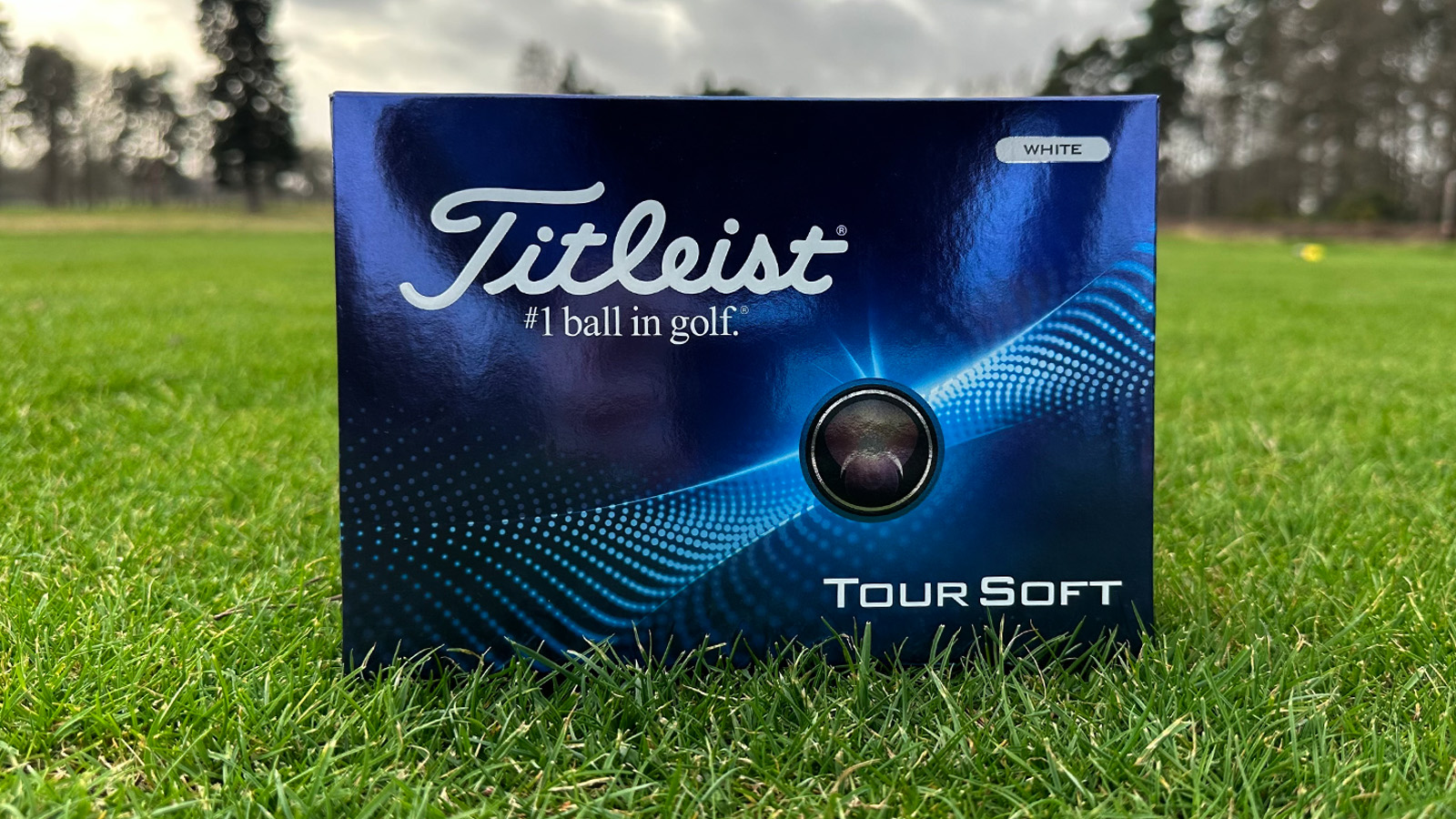
Specifications
Reasons to buy
Reasons to avoid
You might not immediately associate soft feel golf balls with slower swing speeds, but their lower compression can actually help generate extra speed off the clubface without sacrificing feel. Titleist’s Tour Soft is a great example, offering both solid distance and plenty of spin.
The 2024 model features a new Fusablend cover, which enhances short-game feel and control. It's particularly noticeable on chips and pitches around the green and in our testing we really valued the softer touch it provided. While the added spin could cost some distance off the tee for players who already generate a lot of spin, this guide is aimed at golfers with slower swing speeds. Slow swings don’t spin the ball excessively, which means it shouldn’t be a concern here.
Overall, the Tour Soft is an excellent all-rounder, combining distance, spin and durability at a price that represents strong value.
- Read our full Titleist 2024 Tour Soft Golf Ball Review
Best value
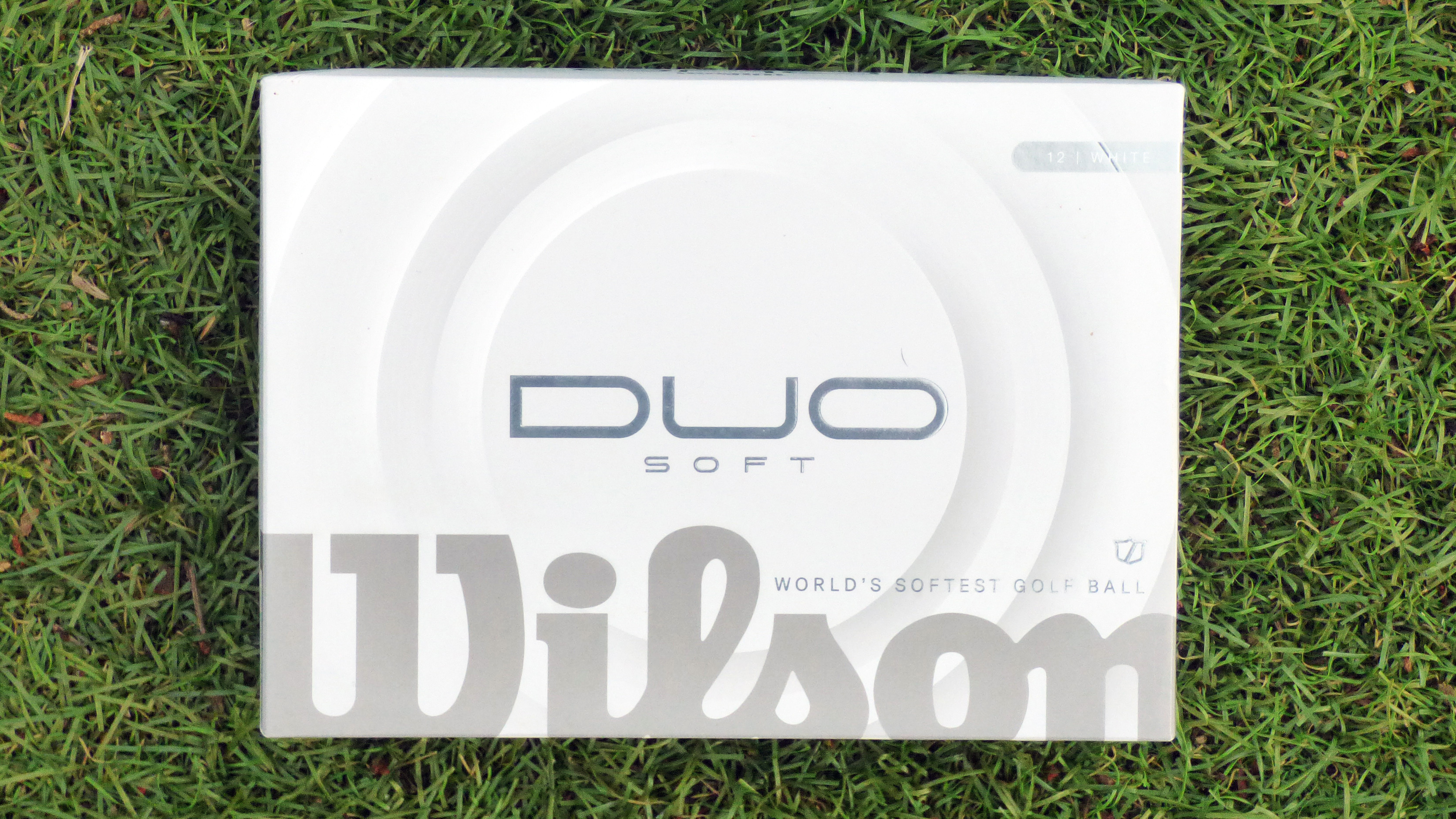
Specifications
Reasons to buy
Reasons to avoid
Offering excellent value alongside consistent on-course performance, Wilson’s Duo Soft earns the title of the “best value” pick in this guide.
With its lower compression this ball is ideal for players with slower swing speeds, helping them achieve easier launch and greater distance. Those who swing faster, however, will be better suited to a firmer, higher-compression ball. The lower compression also makes it easier to generate distance with irons and wedges, as the ball compresses more effectively at impact.
Wilson has also given the Duo Soft a subtle refresh, replacing the colourful logo with a clean black-and-white design that lends a more premium look. Like the very best Wilson golf balls, the Duo Soft is one of the best value golf balls and is well worth trying if you’re looking for a budget-friendly option tailored to slower swing speeds.
- Read our full Wilson 2025 Duo Soft Golf Ball Review
Best feel

Specifications
Reasons to buy
Reasons to avoid
The Speedsoft Ink is a distinctive low-compression golf ball designed for slower swing speed players who also enjoy a touch of flair in their game.
Similar to the Wilson Duo Soft, we found it produced a high ball flight with plenty of spin, making it ideal for the golfer that struggles to get the ball airborne. That added launch makes it easier to attack tucked pins and navigate trickier green setups. The springy feel is typical of softer balls built for slower swingers and while it won’t deliver maximum distance off the tee, we found it to be an excellent all-round option for those prioritising height and control.
The ink-splatter design won’t be to everyone’s taste but we like that TaylorMade has tried something different to make the game more accessible and fun. And if bold designs aren’t your thing, the Speedsoft is also available in classic white and yellow.
- Read our full TaylorMade SpeedSoft Ink 2024 Golf Ball Review
Best distance
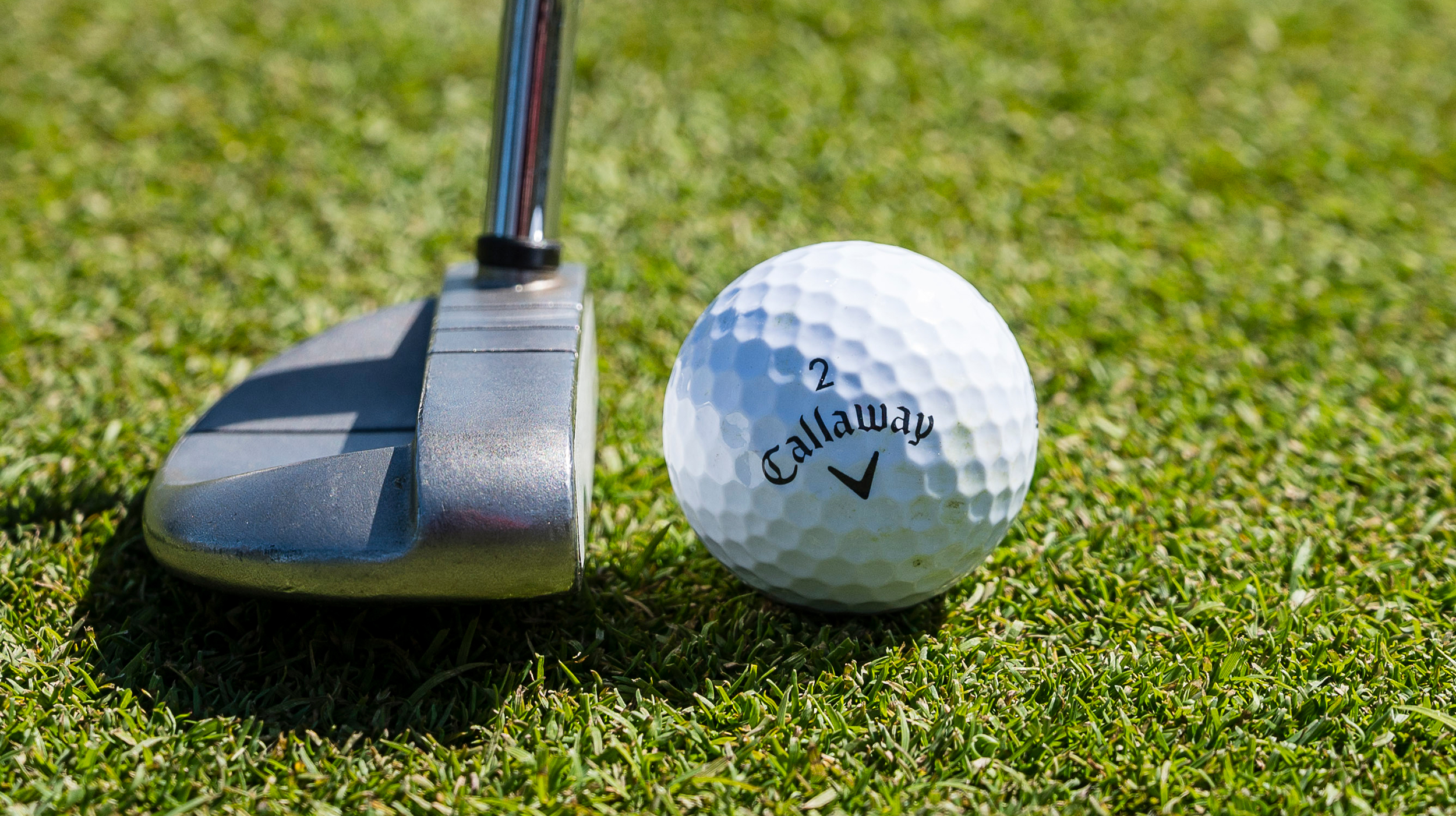
Specifications
Reasons to buy
Reasons to avoid
While Callaway golf balls suit a range of needs, the Warbird remains its tried-and-true distance model. It’s been a staple for decades and with good reason. The Warbird has consistently delivered those extra yards at an affordable price for players seeking a boost in distance.
In testing, the latest Warbird proved a few yards longer than its predecessor. Off the driver it felt lively off the face but the biggest gains came with irons and wedges, where we picked up around five to six extra yards. The trade-off to that is a little less control around the greens, but if distance is your main priority then that is a compromise many will happily accept. And for the average or slower-swinging golfer it’s designed for, the Warbird still feels plenty responsive.
- Read our full Callaway Warbird golf Ball Review
Best 15-pack
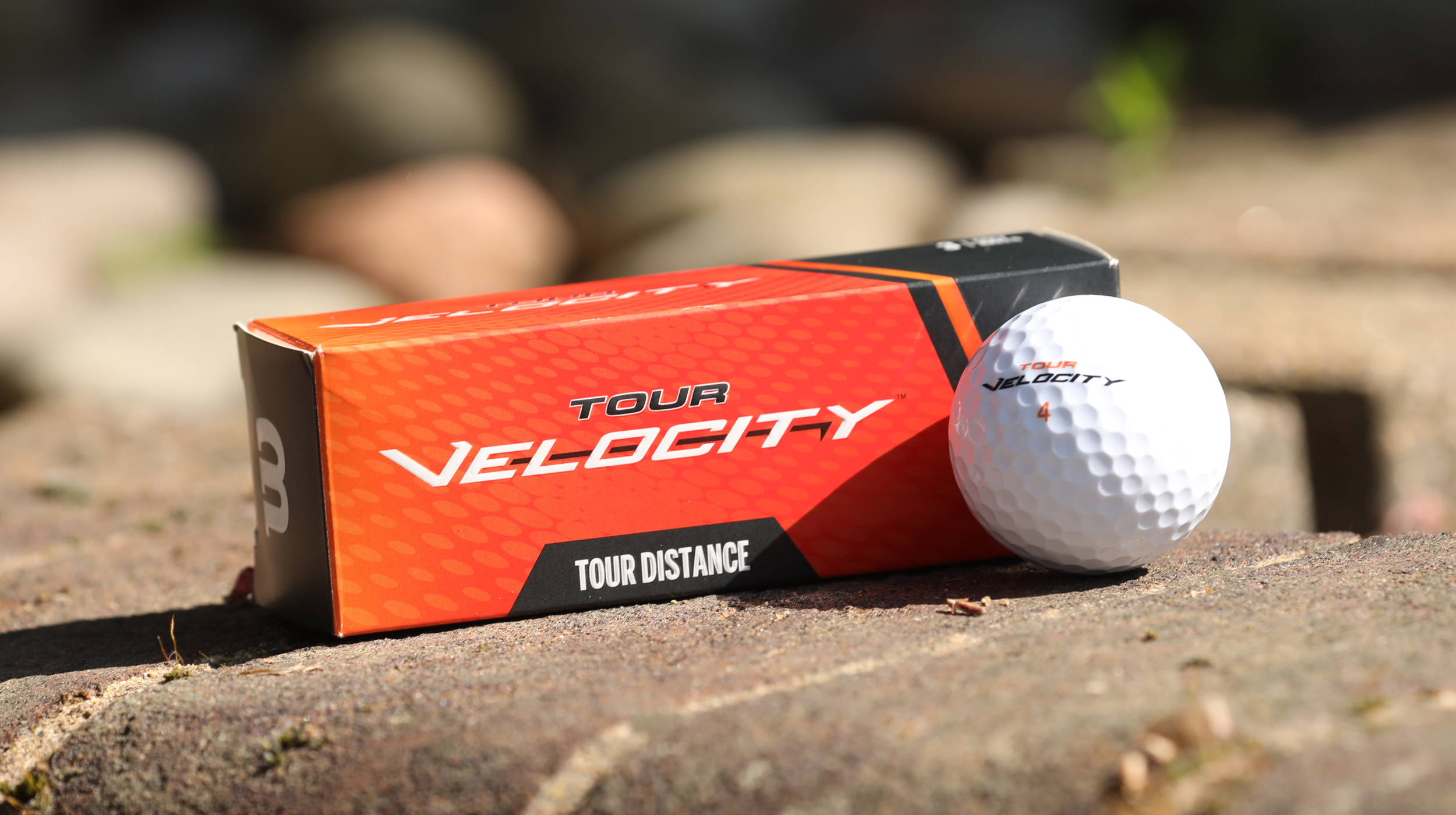
Specifications
Reasons to buy
Reasons to avoid
The Velocity Distance would have taken our “best value” award if not for its sibling, the Duo Soft. Instead, it earns its own spot here thanks to the unique 15-ball pack. That extra value means fewer trips to the shop and even more bang for your buck. But how does one of the best value golf balls fare for slower swing speeds?
In testing, we found it delivered plenty of distance off the tee for slower swingers. Its low-compression construction and aerodynamic dimple design produced a strong, penetrating flight that translated into a few extra yards. The added length carried through to the irons too, though with a little less spin than we’re used to. We even flew a few greens before adjusting to the extra distance and rollout, so that's something to keep in mind when you take this ball onto the course for the first time.
The trade-off, as usual, comes in the short game. If you prefer more check on your chip shots or a softer feel on the greens, the Velocity may not deliver to your expectations. Instead, it has a firmer, more robust feel that clearly favours long-game performance over finesse around the hole.
- Read our full Wilson Tour Velocity Tour Distance Golf Ball Review
How we test golf balls
When testing golf balls, we use the same thorough process applied to all our reviews.
This means assessing them both on the range and out on the course. We typically use one of the best launch monitors to gather detailed data on ball speed, spin rates, carry distances and more. This means we can evaluate performance against the manufacturer’s claims and compare each ball directly with its rivals.
On-course performance is just as important. Our review team looks at how easy a ball is to shape, how well it checks and stops on the greens, and we also assess its durability over multiple rounds. With all this information we can deliver an honest, unbiased review designed to give you a clear picture of how each ball really performs.
How to choose golf balls
With so many options available, choosing the right golf ball is no easy task.
Instead of reaching for the same ball you see advertised during PGA Tour or DP World Tour broadcasts, it’s worth thinking carefully about your own game. After all, most of us don’t have Cameron Champ’s clubhead speed, Rory McIlroy’s towering ball flight or Shane Lowry’s short-game touch. So why play a ball designed for elite players that could actually work against your strengths?
The question is: how do you find the right golf ball for you? A great place to start is by knowing your swing speed. From there you can look more closely at your game and identify the ball that best complements your style of play. Here are the key factors to consider:
1. Distance
If a launch monitor shows your driver swing speed is 90mph or below, you’ll benefit from a golf ball designed for slower swing speeds. The same applies if you consistently struggle to carry the ball beyond 200 yards, even on well-struck shots. Lower-compression models are well-suited to these players and often provide the extra distance they need while still offering plenty of feel.
2. Launch
If your clubhead speed is on the slower side then getting the ball airborne can be more challenging. Golf balls designed for slower swing speeds are typically engineered to launch higher, making it easier to carry hazards or hit into greens where a higher ball flight is essential.
3. Control
While distance is often the main priority for slower swingers, you won’t want to give up too much control in the hunt for extra yards.
Feel is largely subjective as some golfers prefer the firmer sensation and sound of higher or mid-compression balls, while others enjoy a softer response off the clubface. The best approach is to test a few balls designed for slower swing speeds and pay close attention to how they perform on scoring shots around the green and off the putter face. Compare the spin you can generate and how easy it is to control the ball before deciding which one suits your game best.
4. Colors
Golf balls come in a variety of colors so you have a choice. Try different options and see what you like. A brighter ball might suit your eye, as well as being easier to see through the air and find it in the rough. You might even be tempted to try one of the best glow in the dark golf balls.
However, even if you always play a traditional white golf ball it might be worth experimenting with different alignment marks.
5. Budget
Last but not least, how much you can afford to spend? Golf balls vary significantly in price. As you might expect, the balls played by the touring pros are very expensive, but those are aimed at golfers who swing the club at a high speed. For slower swingers it’s usually the case that balls aimed at them are more affordable.
Why not take a look at our guides to the best Titleist golf balls, best Callaway golf balls and best Wilson golf balls to find the right model at the right price?
FAQs
What golf ball should I use with slow swing speed?
These days, most brands produce golf balls tailored for slower swing speeds and they tend to share a few common traits. They are low compression, usually a two or three-piece construction with aerodynamic dimple patterns, and they often have the word “Soft” in the name! Among the standout options are the Titleist Tour Soft, TaylorMade Soft Response, and Srixon Soft Feel.
What does a soft feeling golf ball do?
Soft-feel golf balls use a low-compression core to promote higher ball flights, straighter shots and added distance. Compared to firmer models they generate less spin, which makes it much easier for players to control direction.
What does a slow swing speed mean?
Slow swing speed refers to how quickly you move the club and how much power you generate at impact. Golfers with slower swing speeds typically won’t hit the ball as far as those with faster swings, which is why they should play a different compression golf ball.
Subscribe to the Golf Monthly newsletter to stay up to date with all the latest tour news, equipment news, reviews, head-to-heads and buyer’s guides from our team of experienced experts.

Sam has worked in the golf industry for 14 years, offering advice on equipment to all levels of golfers. Sam heads up any content around fairway woods, hybrids, wedges, putters, golf balls and Tour gear.
Sam graduated from Webber International University in 2017 with a BSc Marketing Management degree while playing collegiate golf. His experience of playing professionally on both the EuroPro Tour and Clutch Pro Tour, alongside his golf retail history, means Sam has extensive knowledge of golf equipment and what works for different types of golfers.
- Joel TadmanDeputy Editor
- Neil TappinEditor
- Sam TremlettSenior E-commerce Editor
- Conor KeenanGear & Ecommerce Writer